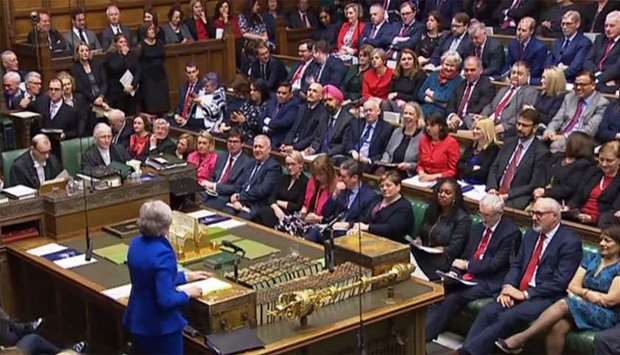The European Commission is due Wednesday to present its Brexit contingency planning to minimize disruption in some key areas in case Britain leaves the European Union in March without a transitional deal in place.
The move comes amid heightened uncertainty over whether British Prime Minister Theresa May will manage to secure parliamentary approval for a Brexit deal struck with Brussels. Britain is due to leave the EU in 100 days - on March 29, 2019.
The commission's proposed measures are expected to cover priority areas where a no-deal Brexit would have a large impact on people and businesses, such as citizens' rights, air travel and financial services, according to an initial document issued last month.
‘Any contingency measures would only be taken in limited areas where they are necessary to protect the vital interests of the EU,’ the commission said at the time. They would be temporary, limited in scope and adopted unilaterally by the bloc.
In the case of an unregulated Brexit, EU rules would stop applying to Britain overnight.
The consequences would be wide-ranging, changing the legal status of British citizens living in the bloc and vice versa, ending border arrangements for people and goods to cross smoothly and disrupting business supply chains.
Among other things, the commission is expected to propose measures to reduce interruptions to air traffic, for example by allowing British carriers to fly over EU territory and land in the bloc.
The EU's executive also encouraged member states in November to take a ‘generous approach’ to British citizens living in their country.
Brussels would likely make its proposals contingent on Britain taking equivalent measures.

